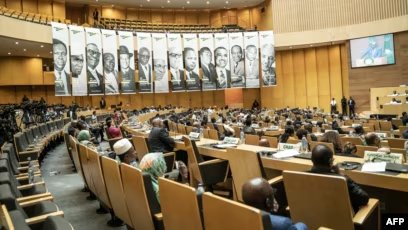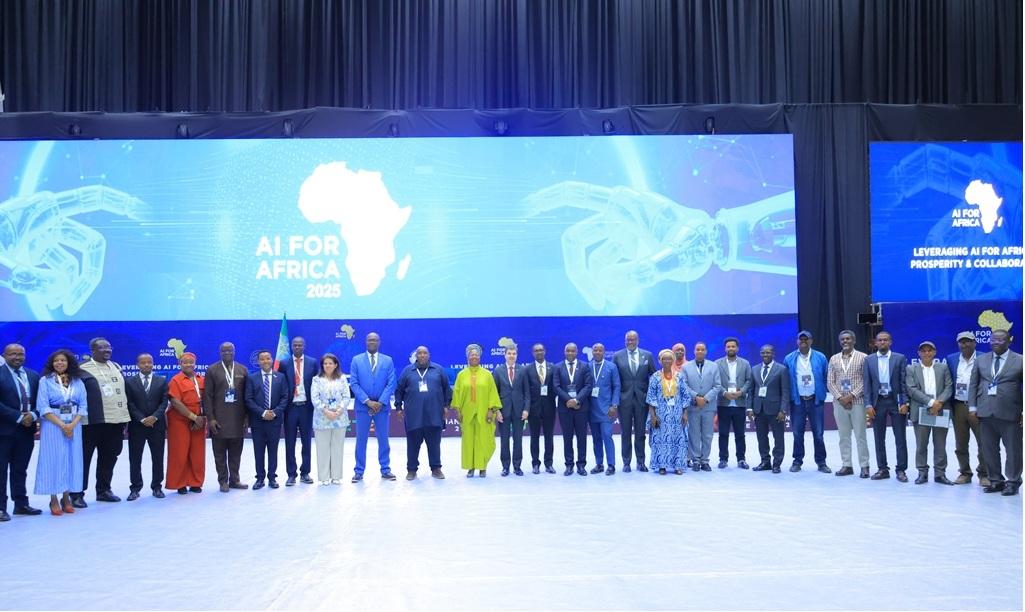Africa is moving from the sidelines to the center of the global artificial intelligence debate. In the past 18 months the African Union and a growing number of national governments have rolled out a coordinated approach to AI — not just to spur homegrown innovation, but to preserve data sovereignty, attract investment and push back against an emerging techno-geopolitics shaped by the United States, China and the European Union.
At the heart of the drive is the African Union’s Continental Artificial Intelligence Strategy, formally endorsed in mid-2024 and reinforced by recent high-level declarations that pledge new institutions and financing tools to scale AI across the continent. The AU’s plan frames AI as a development instrument to be governed in ways that reflect African priorities: talent development, infrastructure, data governance, investment and cross-border cooperation.
“We must ensure AI narrows the digital divide instead of widening it,” AU officials said in May 2025 while announcing steps to accelerate implementation and mobilize partners — signalling an explicit turn away from a model in which external vendors and foreign platforms set the rules. The statement highlighted that the lion’s share of AI startup funding remains concentrated in a handful of countries (Kenya, Nigeria, South Africa and Egypt) and underscored the need to make benefits more widely shared.
A strategic playbook: funding, councils and regulation
Key elements of the continental agenda are institution-building and finance. AU documents and policy briefs outline ambitious proposals — including the creation of an Africa AI Council and an Africa AI Fund — intended to channel public and private capital into startups, research and infrastructure while anchoring norms for ethical and secure AI use. Proponents argue the fund would catalyze local innovation and help governments deploy AI for agriculture, healthcare, education and public services.
On the regulatory side, the strategy pushes for common standards on data protection, cross-border data flows and accountability for automated decision-making. Analysts say these moves are aimed at preventing digital extraction — where data from African users fuels models owned and monetized abroad — and at giving governments leverage in negotiations with foreign vendors.
Geopolitics at play: a tug-of-war between Beijing, Washington and Brussels
Africa’s AI diplomacy is unfolding amid intense competition among major powers. China’s rapid rollout of affordable models and infrastructure partnerships has made it a prominent technology partner across the continent, while U.S. and EU initiatives increasingly emphasise democratic
governance, standards and capacity building. Observers say African governments are seeking to balance these offers to extract technology transfer, investment and favorable terms — rather than choosing sides.
Policy experts warn, however, that the competition can cut both ways: it brings needed capital and tools but risks locking African markets into dependence on foreign models and chips. The AU strategy therefore doubles as a diplomatic instrument — aiming to use common rules and pooled buying power to secure better deals and protect strategic assets such as data.
Local voices and uneven benefits:
While capital flows and national plans multiply, the benefits of AI are uneven. A handful of tech hubs in West, East and Southern Africa capture most venture funding and talent, leaving rural communities and smaller countries behind. Development organisations point to successful pilot projects — AI chatbots for smallholder farmers in Malawi and diagnostic tools in health clinics — but stress that infrastructure gaps (power, broadband), language diversity and low digital literacy limit scale.
Critics also caution against “technosolutionism”: the idea that AI alone will resolve deep structural problems such as poor roads, weak schools or underfunded health systems. Instead, they urge that AI investments be paired with basic development spending and rigorous impact evaluation.
What comes next:
Implementation will test whether the AU’s strategy can move beyond lofty goals to deliver measurable change. Success will depend on whether the proposed fund and council materialize with transparent governance, whether regional standards are adopted by national legislatures, and whether partnerships with outside powers include meaningful local capacity building and data protection guarantees.
For African diplomats, the era ahead is diplomatic and development terrain at once: negotiating terms for tech cooperation, writing the rules for data and AI, and trying to shape an AI future that serves the continent’s economic and social priorities — not just the bottom lines of foreign firms.




